Conservatism
0.0(0)
Card Sorting
1/4
Earn XP
Last updated 10:33 PM on 5/14/23
Name | Mastery | Learn | Test | Matching | Spaced | Call with Kai |
|---|
No analytics yet
Send a link to your students to track their progress
5 Terms
1
New cards
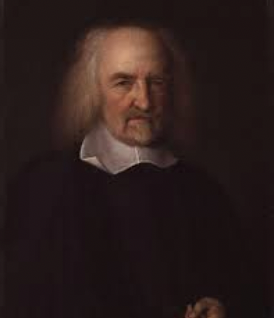
\
**Thomas Hobbes**
**Thomas Hobbes**
\
* Wrote “Leviathan” (1651)
* Sceptical of human nature, humans are selfish
* Life was ==“nasty, brutish and short”== before the state emerged
* Formal authority needed to define right and wrong
* Contract between people and state: would give up sovereignty for order and security
* Even the economy requires law and order to operate
* Wrote “Leviathan” (1651)
* Sceptical of human nature, humans are selfish
* Life was ==“nasty, brutish and short”== before the state emerged
* Formal authority needed to define right and wrong
* Contract between people and state: would give up sovereignty for order and security
* Even the economy requires law and order to operate
2
New cards
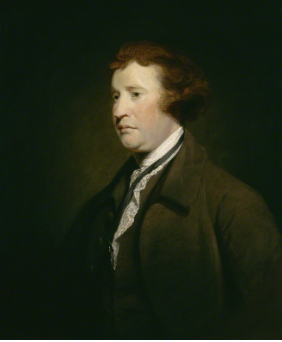
Edmund Burke
* Wrote “**Reflections on the Revolution in France**” (1790), believed the revolution was destroying the traditional institutions of state and society, and condemned the persecution of the Catholic Church that resulted from it
* Supported free-market economist ==Adam Smith==
* Human imperfection, empiricism (basing ideas on ==pragmatics== not ideologies)
* ==Dismissed the idea of equality== but believed the elites were responsible for looking after those below in society
\
* Supported free-market economist ==Adam Smith==
* Human imperfection, empiricism (basing ideas on ==pragmatics== not ideologies)
* ==Dismissed the idea of equality== but believed the elites were responsible for looking after those below in society
\
3
New cards
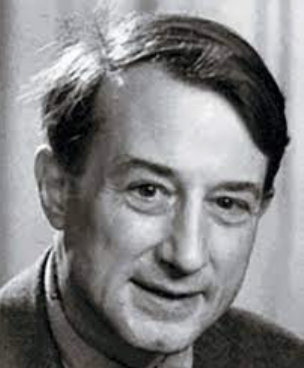
\
**Michael Oakeshott**
**Michael Oakeshott**
\
* Wrote “On Being Conservative” (1962)
* Human nature “fallible not terrible” (disagreed with Hobbes)
* Humanity was incapable of creating a perfect society, ideologies were harmful as they oversimplified human nature
* Should embrace ==knowledge, culture and tradition==, key One-Nation Conservative
* Stated being a conservative was preferring the known to the unknown, underpinned the core of conservatism
* Said politics should be “a conversation, not an argument” therefore ==rejecting the idea of absolutes==
* Wrote “On Being Conservative” (1962)
* Human nature “fallible not terrible” (disagreed with Hobbes)
* Humanity was incapable of creating a perfect society, ideologies were harmful as they oversimplified human nature
* Should embrace ==knowledge, culture and tradition==, key One-Nation Conservative
* Stated being a conservative was preferring the known to the unknown, underpinned the core of conservatism
* Said politics should be “a conversation, not an argument” therefore ==rejecting the idea of absolutes==
4
New cards
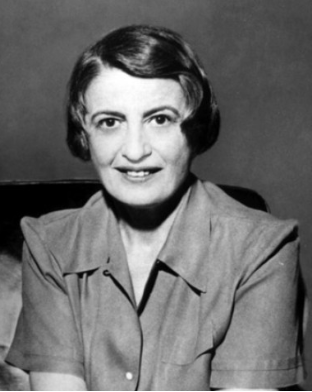
\
**Ayn Rand**
**Ayn Rand**
\
* Wrote “The Virtue of Selfishness” (1964)
* Believed talented individuals were key to society’s success, not the government or state
* ==**Objectivism**:== people should be guided by self interest
* Society does not exist/ it is **atomised** (ie split up into millions of individuals)
* Argued for rolling back of state, tax cuts
* Individuals should ‘ask nothing, expect nothing, depend on nothing’.
* Was a ==**libertarian**== both on economic issues and on social issues (eg abortion)
* Very small but strong state (ie believed in law and order)
* Wrote “The Virtue of Selfishness” (1964)
* Believed talented individuals were key to society’s success, not the government or state
* ==**Objectivism**:== people should be guided by self interest
* Society does not exist/ it is **atomised** (ie split up into millions of individuals)
* Argued for rolling back of state, tax cuts
* Individuals should ‘ask nothing, expect nothing, depend on nothing’.
* Was a ==**libertarian**== both on economic issues and on social issues (eg abortion)
* Very small but strong state (ie believed in law and order)
5
New cards
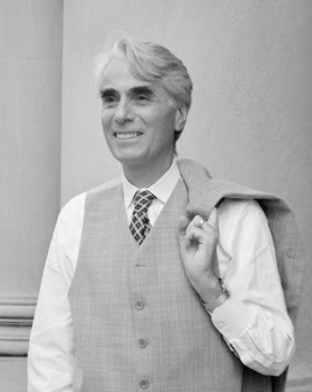
Robert Nozick
\
* Wrote “Anarchy, State and Utopia” (1974)
* Key thinker for the New Right
* Humans are driven by a quest for “==self ownership==” so they can reach their full potential
* Thought the growth of the state was the greatest threat to individual freedom, welfare state lead to dependency culture
* ==Libertarian==: state should leave people alone economically and socially
* Described tax as theft
* Not an anarchist- some degree of formal authority
* Wrote “Anarchy, State and Utopia” (1974)
* Key thinker for the New Right
* Humans are driven by a quest for “==self ownership==” so they can reach their full potential
* Thought the growth of the state was the greatest threat to individual freedom, welfare state lead to dependency culture
* ==Libertarian==: state should leave people alone economically and socially
* Described tax as theft
* Not an anarchist- some degree of formal authority